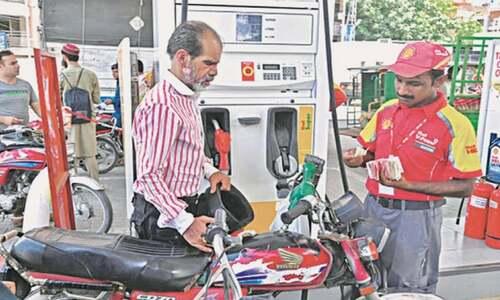KARACHI: The State Bank of Pakistan (SBP) injected Rs667.8 billion into the banking system on Friday to meet the liquidity gap emerged after heavy government borrowing from the banks.
The central bank injected Rs624.8bn for seven days and Rs43bn for four days, with rate of return at 6.51 per cent and 6.50pc, respectively.
During the outgoing fiscal year, the banks mostly remained short of liquidity and the SBP kept injecting money into the system.
The main reason for this liquidity gap was huge investment by the banks in the government papers, which offers them better risk-free returns and their assets quality has also improved with low infected loans.
However, this easy profitability has practically disconnected banks with the market economy. They extend low-risk and short-term loans to agriculture sector and industries for meeting their working capital needs.
Traders and industries found it hard to use banks for their new projects.
They complain that banks put a number of conditions for loans and their charges are much higher than the policy interest rate announced by the government.
A leading industrialist was of the view that banks would not take risk while they can earn by lending to the government.
The SBP’s latest report shows that the private sector credit off-take was Rs115bn in the outgoing fiscal year compared to Rs294bn in the previous year, a sharp decline despite frequently falling interest rates.
The central bank cut key lending rate from double digits to 7pc, but the private sector remained unmoved and did not show any interest to borrow from the banks.
The government failed to achieve economic growth target in FY15, but it believes the situation would improve in FY16. However, it seems difficult to achieve growth without the participation of banks.
Though banks have changed their strategy, to short-term treasury bills from Pakistan Investment Bonds, their investments are still in the government papers.
Published in Dawn, June 27th, 2015
On a mobile phone? Get the Dawn Mobile App: Apple Store | Google Play













































Dear visitor, the comments section is undergoing an overhaul and will return soon.